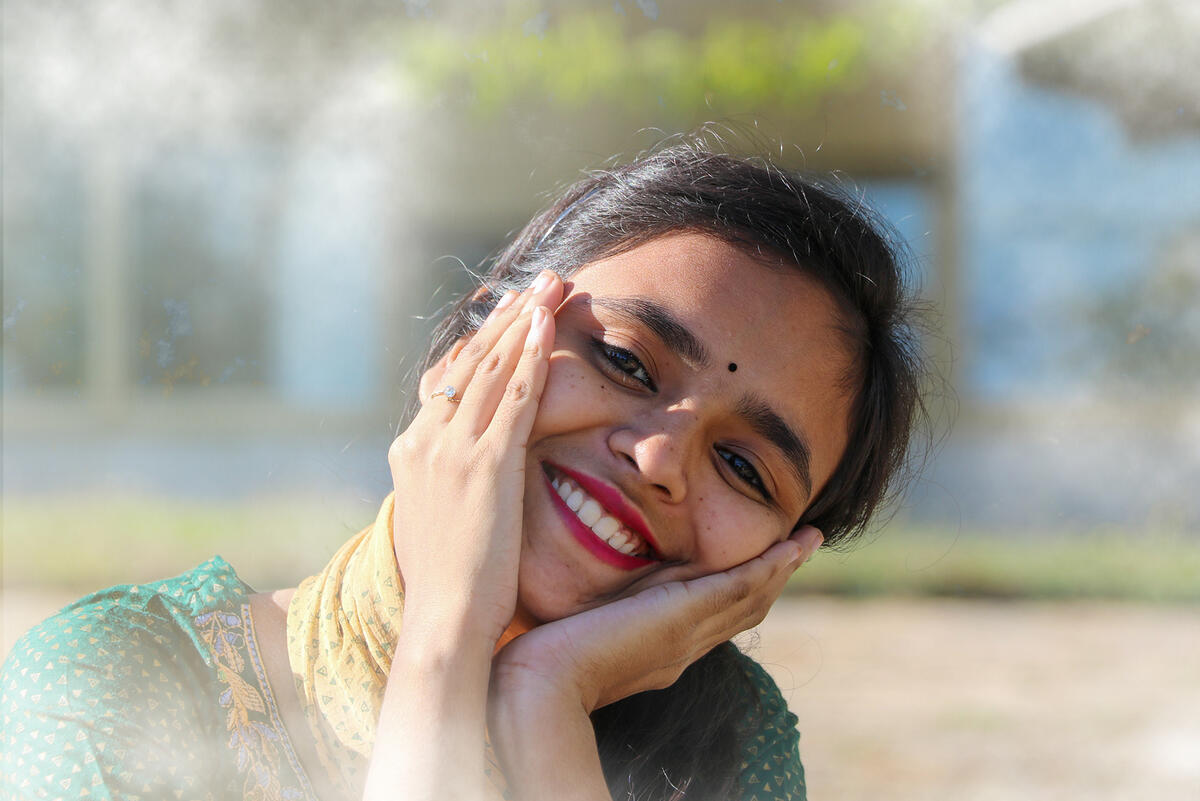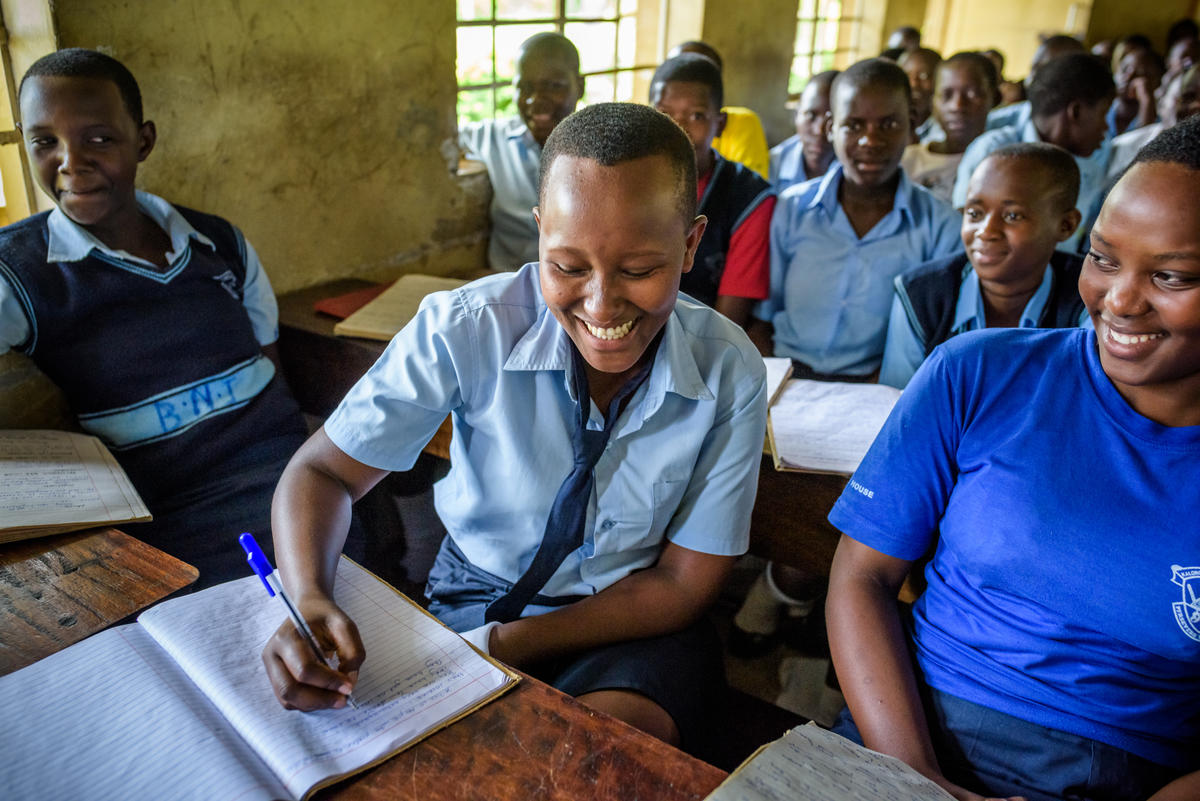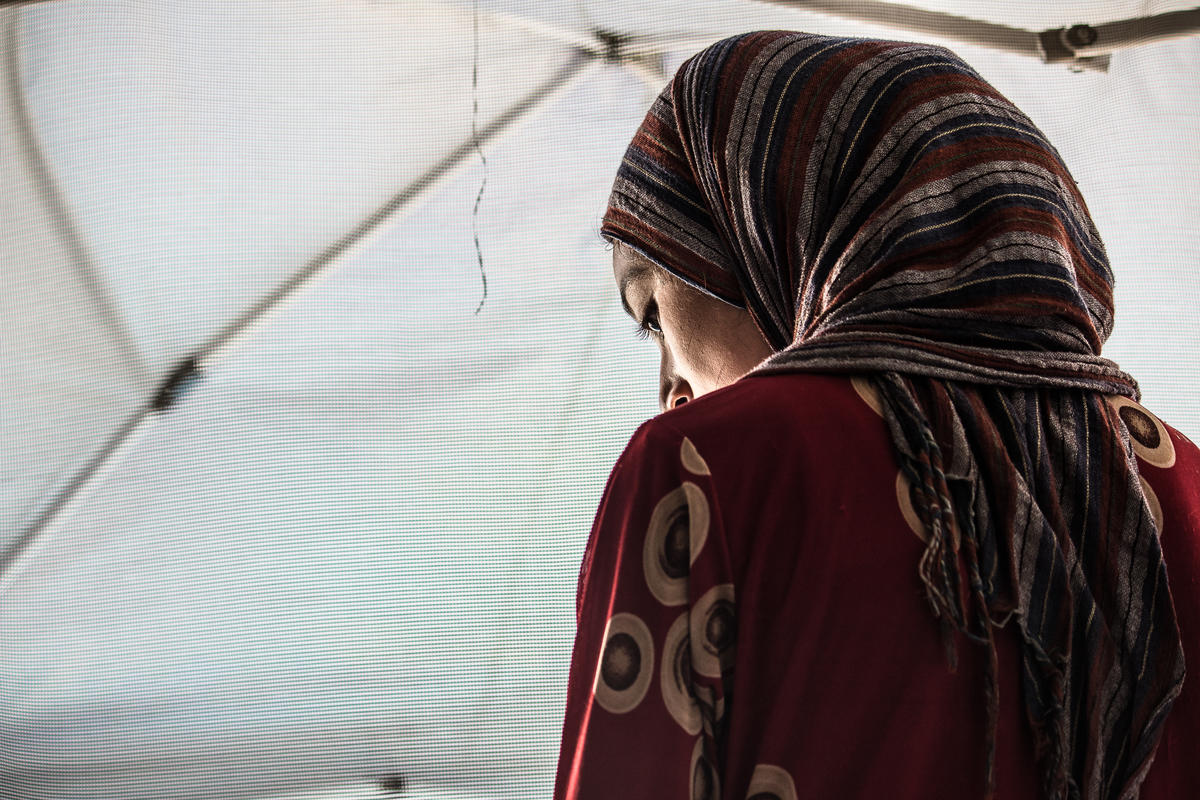
Sponsored child, Dola,
proclaims to the world that girls are not a burden
“Many people of Bangladesh treat girl children as a burden. My mother was also a victim,” Dola shared. She remembered asking her mother to describe memories from her childhood, but her mother struggled to recall much. She had been forced into child marriage at 13. “From her childhood she had to manage a family.”
“She dreamed of becoming a banker, but her father and mother treated her as a burden,” Dola said. “They forced her to get married. She faced physical and mental violence from her husband.”
Dola nearly suffered the same fate at 12 years old when community members insisted that she be married off to “a very good boy”. Dola’s mother turned them away, determined to keep her child in school. She didn’t see Dola as a burden. She knew her daughter was a blessing.
Inspired by her mother, Dola has been advocating with World Vision to end child marriage since she was 10 years old. Dola, now 16, continues to show that girls are a blessing to their families. Addressing the United Nations on Day of the Girl Child 2019, she declared, “Girls are not a burden. Girls can go further than we imagined.”

Addressing poverty
Many families fear they can’t provide for their children’s basic needs and safety. Nearly 40% of girls in the world’s poorest countries are married as children. “In my country, some parents, especially from traditional communities, believe that child marriage is a way of protecting their daughters,” Dola said.
Tragically, they’re wrong. Child marriage is devastating to young girls. They are in fact more likely to stay in poverty, often due to cutting their education short, and their safety is significantly reduced. Like Dola’s mother, girls who are married as children are likelier to be the victims of domestic violence and abuse. They are also at a higher risk of dying from childbirth.
At World Vision, we know that to have an impact on child marriage, we must address poverty. By tackling the root causes of poverty, we’ve helped protect over 200 million vulnerable children.

Empowering girls
One of those vulnerable children was Dola, who was sponsored through World Vision at 4 years old.
Dola’s mother was supported in standing up for her daughter’s education. Dola was trained and empowered to advocate for her rights.
“Every day with World Vision is a precious moment for me,” Dola said. “In this platform I've grown up, I've learnt about my rights. I became a leader.”
When Dola reflected on 12 years with World Vision, it was her sponsor that stood out most. “My sponsor used to send me a lot of letters, lots of gifts. These things encouraged me and make me feel good.” Dola was inspired by the fact that her sponsor was “from a very far country,” but still, “she is connected with me.” “She came in my life like a blessing of God,” Dola concludes.

Child Participation
Moved by her mother’s lack of a childhood, at only 10 years old, Dola volunteered with her local child forum, supported by World Vision.
Before long, Dola was on the leadership team. Over the last few years, the child forum worked to raise awareness about child marriage and informed children of their rights. Through school campaigns, posters, and social media, they reached 70,000 children.
Bangladesh has one of the highest child marriage rates in the world. Nearly 60% of girls in Bangladesh are married before their 18th birthday.
Through the child forum, girls are empowered to ask for meetings with community leaders, to talk to school principals, and to write letters to local law enforcement officers. They demand that adults uphold the law and intervene. “Together we have stopped 600 child marriages,” Dola stated happily.
Dola participated in Day of the Girl Child 2019 at the United Nations in Geneva, Switzerland. “This was one of the most memorable things in my life,” she said. “I saw there are lots of opportunities to speak about your own rights, and there are a lot of opportunities to raise awareness.”
She proclaimed to the world, “We need to work together to stop child marriage. Parents and teachers should discuss about child marriage with children. Girls are not a burden. Girls can go further than we imagined.”

What now?
“Because of this pandemic we get stuck at home.” Despite her circumstances, Dola continues to fight against child marriage. She is still advocating online through Facebook, Instagram, and Twitter. “We are fighters, and we will still fight to achieve our rights,” she said.
According to World Vision’s Aftershocks report, millions more girls globally will be married in the next two years as a result of COVID-19 lockdowns.
Dola’s child forum continues to focus on child marriage, but they are also advocating for gender equality, as well as Sustainable Development Goals (SDG), a collection of 17 global goals for a better future.
She’s thinking about her future, too. “I want to be a journalist and continue my education,” she said. She also wants to work on creating an app “where anyone can complain about child marriage.” She believes it would help authorities by keeping documents accessible digitally, “so that it can't be destroyed.”
“Right now, I want to focus on Bangladesh, and then I want to move globally to end child marriage.”



